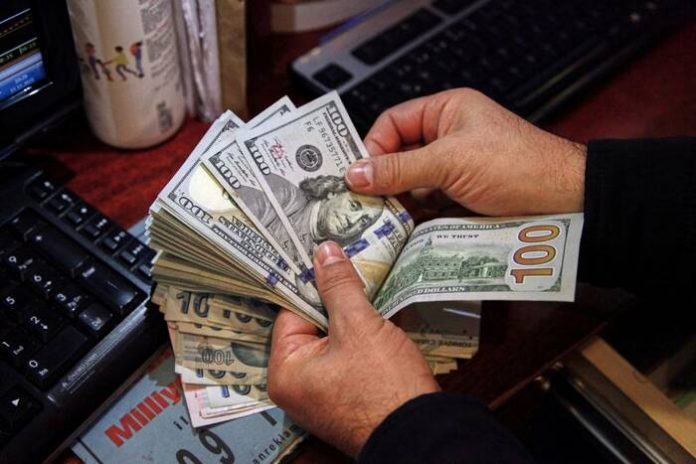LONDON (Reuters) -The euro fell in thin holiday trading on Wednesday and the dollar sent the yen to a one-month low, as investors looked past surging cases of Omicron in another bout of risk appetite.
Risk-sensitive currencies such as the Australian dollar were higher as stocks motored upwards but the euro bucked the trend and weakened 0.2% to $1.1287, while the dollar index added 0.2% to 96.321.
With many traders having taken time off for Christmas or the end of the year, analysts said it was hard to read too much into the moves. The main driver this week was continued optimism that Omicron would not derail economic momentum.
“The Omicron variant continues to rage and fails to register on this market, even as global cases topped a million for the second day running,” said Saxo Bank analysts.
The dollar rose versus the safe-haven yen, gaining 0.1% to 114.98, its strongest since late November. While the yen has been battered by the strength of investors’ risk appetite, analysts said end-of-quarter investor flows were also impacting the currency.
Sterling dipped 0.1% to $1.3420 while it gained 0.1% versus the euro to 84.14 pence.
Elsewhere, Turkey’s lira dropped more than 2% to around 12 per dollar, eating further into the huge gains made the previous week, as worries persisted over soaring inflation and unorthodox monetary policy.
DOLLAR BULLS
U.S. health authorities on Monday shortened the recommended isolation time for Americans with asymptomatic cases of COVID-19 to five days from the previous guidance of 10.
The dollar was also supported by a rise in two-year Treasury yields which hit 0.758% on Tuesday, a near two-year high, before slipping marginally to 0.7461%. [US/]
Kyle Rodda, an analyst at IG Markets, said longer term he was bullish on the U.S. dollar due to approaching rate hikes by the Federal Reserve and the apparent reduced chance of future lockdowns in the United States.
Moves were more stark in cryptocurrencies, which often see sharp swings in low liquidity periods such as weekends and holidays.
Bitcoin lost around 6% late on Tuesday to as low as $47,300, giving up all of the steady gains it had made this week. It was last up 0.5% at $47,764.
Ether, the world’s second-largest cryptocurrency that underpins the ethererum network, also lost around 6% to as low as $3,760, also a week low, before recovering slightly to trade at $3,799 on Wednesday.
EURO ZONE YIELDS RISE
Euro zone government bond yields rose on Wednesday as investors focused on central banks tapering, while risk sentiment was back amid fading concerns about the economic impact of the Omicron variant.
Italian government bond prices continued to underperform their peers as markets worried about the country’s political stability should the former ECB chief Mario Draghi leave his job as a prime minister.
Draghi is the leading candidate to become Italian president in a parliamentary vote, which will take place in January.
Germany’s 10-year government bond yield was up one basis point at -0.228%.. Italy’s 10-year government bond yield rose 3.5 basis points to 1.134%




